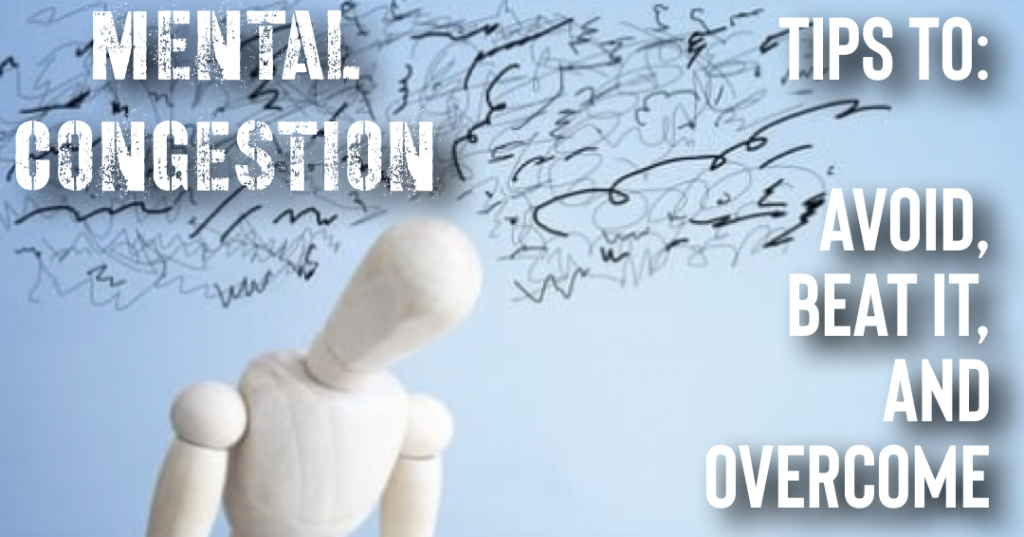
Written by Jennifer Cox LCPC
I have come across this word a few times, mental congestion, I believe it is a good term to describe how one becomes overwhelmed, burned out, stressed, mentally exhausted, etc.
No matter what word you use or where the congestion stems from the emotional toll that occurs from the accumulated stress affects how we function and how we interact throughout our day.
So what’s mental congestion?
-Having so much going on that you can’t keep it straight, it’s all running around in circles within your mind.
-When you have too many things to do, but not enough time, struggling with getting it all done.
-Feeling as though one thing gets completed, but another one awaits.
This feeling can lead to procrastination, low self esteem, avoidance, fear of failure, and anxiety or depression symptoms.
So how does one get to mental congestion? Here are some ways it can happen:
*The need to be successful
*Feeling as though you can do it all, taking on too much
*Not being able to keep on top of everything which could lead to self-defeating thoughts
*Losing motivation to keep going because you are overwhelmed
*Poor boundaries, saying yes to everyone and everything
Mental breaks (downtime) increase productivity, replenish attention, solidify memories, allow one to be mindful, and encourage creativity.
So what do you do? Here are some tips:
*Acknowledge that you are suffering.
*Identify why you are experiencing mental congestion.
*Giving yourself permission to let certain things go – Learn acceptance.
*Learn to set boundaries and say no – Before committing, take a moment to look at what you do have going on before taking on another task. Also, consider asking yourself why you can’t say no.
*Stop with the multitasking. You only truly can do one task at a time. Multitasking doesn’t exist, something gets left behind.
*Put your phone down – The pressure to be productive and the comparison to others has heightened these days due to social media (to do more than the next person). Not to mention it is a huge distraction.
*Get an exercise routine started – Increase your dopamine, endorphins, and all those hormones/chemicals to boost mood and motivation.
*Be mindful, in the present moment – This can help your brain change channels and take a much needed break. Enjoy the moment, stop and breathe.
*Schedule ‘me’ time – Actually put it on your calendar or to-do list.
*When overwhelmed, one can procrastinate – Set an alarm every 20 mins to refocus and energize your self, take a 5 min break such as grabbing a snack or water, let the dog out, etc. By knowing that you won’t have to do the task indefinitely can make diving in much easier.
*Clean up your electronics and personal/work area, delete emails, clear tabs, organize your files, etc. Clear the clutter – This may take some time to accomplish, however, in the long run you will feel better and more motivated.
*Ask yourself… Do you know how to relax?
Remember:
You have to make a change to have change.
You can only take things one day at a time or better yet one task at a time.
When starting something new, take small steps toward your goal. You will see success which will increase your confidence and motivation to keep going.

